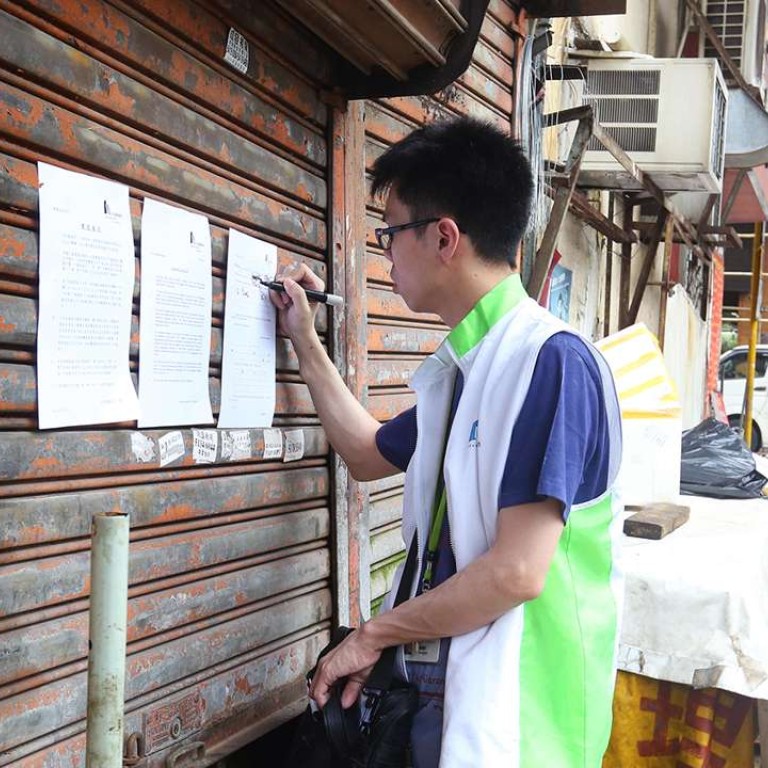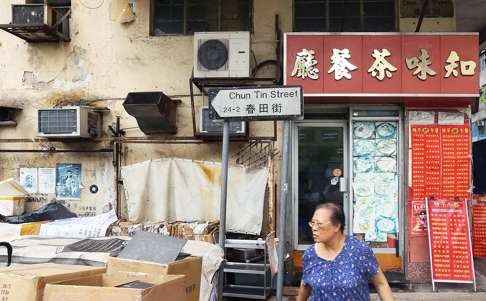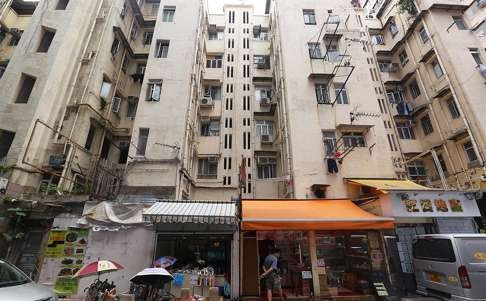
New HK$1.75 billion redevelopment plan to double flat supply but not till 2025 at earliest
Revised Urban Renewal Authority project also meant to improve road access and pedestrian use, pending Town Planning Board’s approval
A plan to redevelop dilapidated flats at Chun Tin Street in Hong Kong near the site of a deadly 2010 building collapse has been delayed by a year, but the number of new flats to be supplied will double.
This would push back the project’s completion date by a year to 2025 at the earliest.
However, the number of homes on offer from the redevelopment would double from 150 to 310 flats.
In January last year, the authority revealed it wanted to raze 14 connected low-rise buildings on Chun Tin Street and Hok Yuen Street in To Kwa Wan.
Michael Ma, the authority’s director of planning and design, denied on Friday that a poorly designed original plan caused it to be withdrawn and revised.

“It has nothing to do with poor planning,” Ma said.
The aim of the revision integrating the ongoing Ma Tau Wai Road renewal project nearby was to improve road access and make it more pedestrian-friendly, he said, adding: “The inclusion of the adjoining street requires rezoning which has to go through the town planning process.”
Ma said the 310 flats to be built would not be luxury flats but instead small and medium-sized.
In total, the project would affect 85 households and 15 shop operators and was estimated to cost HK$1.75 billion.
To compensate affected landlords and tenants, the authority planned to offer a special one-off measure in which it would offer to buy the flats at current market rate. Another valuation would be conducted if the project was approved. The authority would pay the owners seeking to sell their properties at whichever of the two values is higher.
Asked if property owners might lose out in selling their flats to the authority as the project already started last year and the housing market in the city was now cooling, Ma replied: “We have not started acquisition [of property interest] since the project’s commencement last year.”

One affected resident, Ku Kan-shing, 70, said he welcomed the redevelopment as his 500-square-foot flat was in poor condition and that the authority’s construction nearby had led to considerable shaking and dust.
Yet when asked whether he was happy with the authority’s compensation arrangement, Ku said he was not aware of it.
“I just learned about it today,” he said. “I don’t understand how it works.”
Ku also expressed concern that the compensation might not cover the cost of later buying a similar flat in the neighbourhood, where he has resided since 1989.
Kwok Lin-sang, owner of a tea cafe at the junction of Chun Tin Street and Hok Yuen Street, said he also welcomed the redevelopment but would miss the neighbourhood dearly.
“It’s true that the buildings here are dilapidated. There are many sub-divided flats,” Kwok said. “But it would be up to my landlord to accept the compensation or not.”
In 2010, Block J at 45 Ma Tau Wai Road collapsed. Four people died when the dilapidated building caved in during work to demolish an illegal structure on the ground floor.
The tragedy prompted calls in the community for the government to urgently address urban decay and review the conditions of old buildings in the city.
